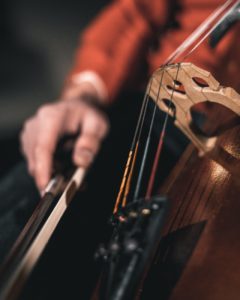
Photo by Quentin Ecrepont on Pexels.com
This past year I’ve had the privilege and honor to serve as practice coach and Alexander Technique teacher to some especially outstanding musicians, from elite orchestral members, to studio session pros, to outstanding jazz artists.
I’m always so thankful for what I learn from my clients, and use what I learn not only to help other musicians, but to also better help myself as a musician.
As I reflect upon the year, both as teacher and as student, I become aware of certain recurring principles that seem be most essential in the process of improving as a musician. These are the concepts that arose most frequently for both my clients and for me (sort of a “Top 10”, as it were), and are topics I’ve written about in greater detail on this blog.
I’d like to share them with you in the form of some gentle advice.
Here they are:
1. Be clear about what you want.
How do you want to play? Strive for a detailed conception of the kind of musician you aspire to be. Understand that this conception will most likely change along the way, but being clear about what you want will help you work most specifically and effectively.
2. Be clear about how things work.
Understand at least the basic science behind how your instrument works (acoustics), and your human design (anatomy and physiology). You can avoid lots of misdirected effort by being clear on these things. Take responsibility to learn and understand the physical principles involved in playing, and pick and choose the pedagogy that best suits these principles.
3. Use yourself well.
This is the foundation of the Alexander Technique. How you “use yourself” includes your movement, posture (including how you hold your instrument) and your quality of attention (basically, how you “react” as you play your instrument). By using your entire self in a balanced, more conscious way (i.e., in cooperation with your human design) you create the best conditions for successful musical results (not to mention you also avoid strain and injury).
4. Let your ear lead.
Aim for an expressive rather than a mechanical quality in your attention as you play. This is a matter of letting your aural imagination (your ear!) be the initiator of musical activity (e.g., your desire/conception for your best, most expressive sound; not your desire/conception for the “correct embouchure”). When your aural conception is clear, your brain is free to organize the movement to manifest your musical expression in a naturally efficient way.
5. Balance the internal and external.
More specifically, don’t become too internally focused as you practice and/or play (micro-managing tongue, fingers, embouchure, etc.) Be available to notice what you’re doing with your entire self (an internal awareness), and integrate that with hearing and feeling your sound and expression outside of yourself (in your instrument, in the room, in conjunction with the other musicians, etc.) Many coordination problems musicians develop (including focal dystonia) are partly a result of a too narrowly focused internal attention.
6. Understand (and strengthen) the relationship between your perception of time and your coordination.
All problems musicians have with coordination and technique are some form of problem with perceiving time. As you improve your time, you improve your coordination and technique. The clearer and more precise your time perception becomes, the cleaner and faster your technique becomes. So rather than wishing for “fast fingers”, wish instead for clear, solid time. (Even things like pitch and attack are conditioned by your perception of time.)
7. Bring things within reach.
I too often see musicians reaching too far beyond what they are capable of doing in that particular practice session. Besides being a less than optimum learning experience, this also leads to frustration and self-doubt, as well as poor movement and postural habits (i.e., “misuse”). Aim at regressing (simplifying) a too-difficult exercise so that is only slightly out of your reach. Then work gently and mindfully to bring it back within your reach. Repeat this process many times as you’re practicing something and you’ll be pleasently surprised at your progress. “Lots of little bites finish the entire meal with the greatest satisfaction”, my mother used to say to us kids.
8. Get good at stopping.
There is no point in rushing on to the next attempt to correct what you just did until you are clear about what needs to change, or more specifically, what you need to do differently to make that change. Get good at stopping and redirecting attention and effort. The better I get at practicing music, the better I get at stopping. It is never a waste of time.
9. Find satisfaction.
Sure, you want to get better. You want to be able to do more than you can do right now. But it’s important that you reaffirm what you already can do. You need to do this everyday (no matter how “poorly” your practice session has gone). Always try to end your practice session with something that makes you feel satisfied with what you can already do as a musician. This will keep you inspired, motivated, and in love (which leads me to the next principle!)
10. Play from a place of love.
I leave the most important principle for last. I still witness far too many musicians that are making music predominantly from a place of fear. This often creates problems for them, some of these problems quite serious. Playing music with a motivational energy of love not only is more satisfying, but it also helps your brain organize the movements necessary to play in the most optimum manner. Love brings with it curiosity, faithfulness and persistence, and with these come continued improvement.
So I hope you consider some of these principles, as I also wish you a wonderful, growth-filled, musically challenging and satisfying life!